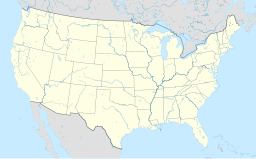Levittown, Pennsylvania
| Levittown | |
| Recovery Row, L-Town | |
| Census-designated place | |
| Country | United States |
|---|---|
| State | Pennsylvania |
| County | Bucks |
| Municipalities | Bristol Township, Falls Township, Middletown Township, Tullytown Borough |
| Elevation | 30 ft (9.1 m) |
| Coordinates | 40°09′15″N 74°50′59″W / 40.15417°N 74.84972°WCoordinates: 40°09′15″N 74°50′59″W / 40.15417°N 74.84972°W |
| Area | 10.2 sq mi (26.4 km2) |
| - land | 10.0 sq mi (26 km2) |
| - water | 0.2 sq mi (1 km2), 1.96% |
| Population | 52,983 (2010) |
| Density | 5,298.3/sq mi (2,045.7/km2) |
| Timezone | EST (UTC-5) |
| - summer (DST) | EDT (UTC-4) |
| ZIP Codes | 19054-19058 |
| Area code | 215 |
|
Location of Levittown in Bucks County
|
|
| Designated | November 28, 1992 |
Levittown is a census-designated place (CDP) and planned community in Bucks County, Pennsylvania, United States, within the Philadelphia metropolitan area. The population was 52,983 at the 2010 census. It is 40 feet (12 m) above sea level. Though not a municipality, it is sometimes recognized as the largest suburb of Philadelphia in Pennsylvania (while Upper Darby Township, Lower Merion Township, Bensalem Township, Abington Township and Bristol Township are municipalities larger in size in the three surrounding Pennsylvania counties). Starting with land purchased in 1951, it was planned and built by Levitt & Sons. The brothers Bill Levitt and architect Alfred Levitt designed its six typical houses.
The majority of the land on which it is built was purchased in 1951. Levitt and Sons only built six models of house in Levittown, all single-family dwellings with lawns: the Levittowner, the Rancher, the Jubilee, the Pennsylvanian, the Colonial and the Country Clubber, with only modest exterior variations within each model. The homes were moderately priced and required only a low down payment. Construction of Levittown began in February 1952, soon after completion of Levittown, New York, located on Long Island. Levittown, Pennsylvania was the second "Levittown" built by William J. Levitt, who is often credited as the creator of the modern American suburb. To speed up construction, Levitt & Sons perfected a 26-step rationalized building method that was essentially an assembly line type of home building. The house remained stationary, while the construction workers moved from house to house. Each worker had one task such as pouring slabs, framing, installing electric sockets or installing washing machines. This highly regimented process enabled Levitt's workers to produce a finished house every 16 minutes. Construction of the homes commenced in 1952 and when completed in 1958, 17,311 homes were built.
...
Wikipedia




